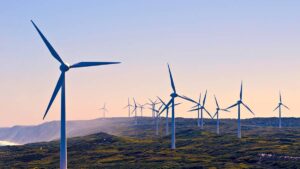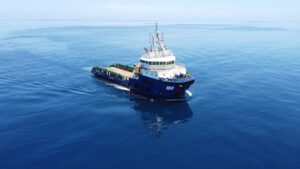Green Energy: Can Tasmania be the ‘Battery of the Nation’?

Pic: Getty
$3.5b Tassie mega project really just a favour to the mainland – TasNetworks commissioned report says
Tasmania may not – and may never – have an AFL team, but it is a superpower when it comes to renewable energy.
It reckons it will be doing those uncaring mainlanders a big favour as well by exporting that renewable energy across the Bass Strait alongside the existing Basslink via two subsea transmission cables costing $3.5b.
The logic is relatively straight forward. Tasmania produces almost 100 per cent of its power through renewable sources, largely from the hydroelectric power it has enjoyed for the past century.
This power is “dispatchable” and could provide on-demand clean power by the end of the decade, in time to replace generation from retiring coal-fired stations.
Marinus Link
The TasNetworks Marinus Link project, which comes with a very unnecessary homepage explanation that marinus is Latin for marine, would reduce prices on the National Electricity Market in the east coast by $4-5 per MW/h, according to analysis prepared for Marinus Link by EY and FTI Consulting.
“Australia’s transition to renewables is happening quickly. The National Electricity Market needs access to affordable, ‘on-demand’ energy and long duration deep storage to ensure the lights stay on and power bills stay low,” project general manager Bess Clark said.
“Marinus Link is the key to unlocking the deep storage of the Battery of the Nation for mainland Australia – increasing reliability, keeping electricity prices lower and significantly boosting access to renewable energy.”
“It will give Australians access to cheaper, clean, reliable energy and transform Tasmania into a renewable energy powerhouse,” he said.
“Project Marinus will be a significant contributor to Australia’s emissions reduction ambitions, being a cost-effective means to rapidly cut emissions, leading to savings of up to 70 million tonnes of CO2 equivalent.”
The project would be built in two stages of 750MW each by 2027 and 2029, respectively, with a final investment decision set out for 2023/24.
Now for the kicker
According to the report both Tasmania and Victoria would bear the costs of developing the pipeline, building on an uncomfortable conversation about who pays for the thing.
TasNetworks wants to leverage the report’s claimed benefits for other states like New South Wales, Queensland and South Australia, to lobby for a change to market rules that would see “beneficiaries” of the pipeline in other states cover a share of the costs.
“The benefit to consumers arising from Marinus Link and additional Tasmanian renewables capacity, in terms of lower wholesale electricity prices, is widely spread across the NEM, with all jurisdictions being better off,” FTI Consulting’s Jason Mann said.
“Therefore it is necessary to develop an approach that recovers the costs of Marinus proportionately from those who benefit from the link.”
Best of luck, Tassie. And best of luck on that AFL team Peter Gutwein.
Related Topics
UNLOCK INSIGHTS
Discover the untold stories of emerging ASX stocks.
Daily news and expert analysis, it's free to subscribe.
By proceeding, you confirm you understand that we handle personal information in accordance with our Privacy Policy.








